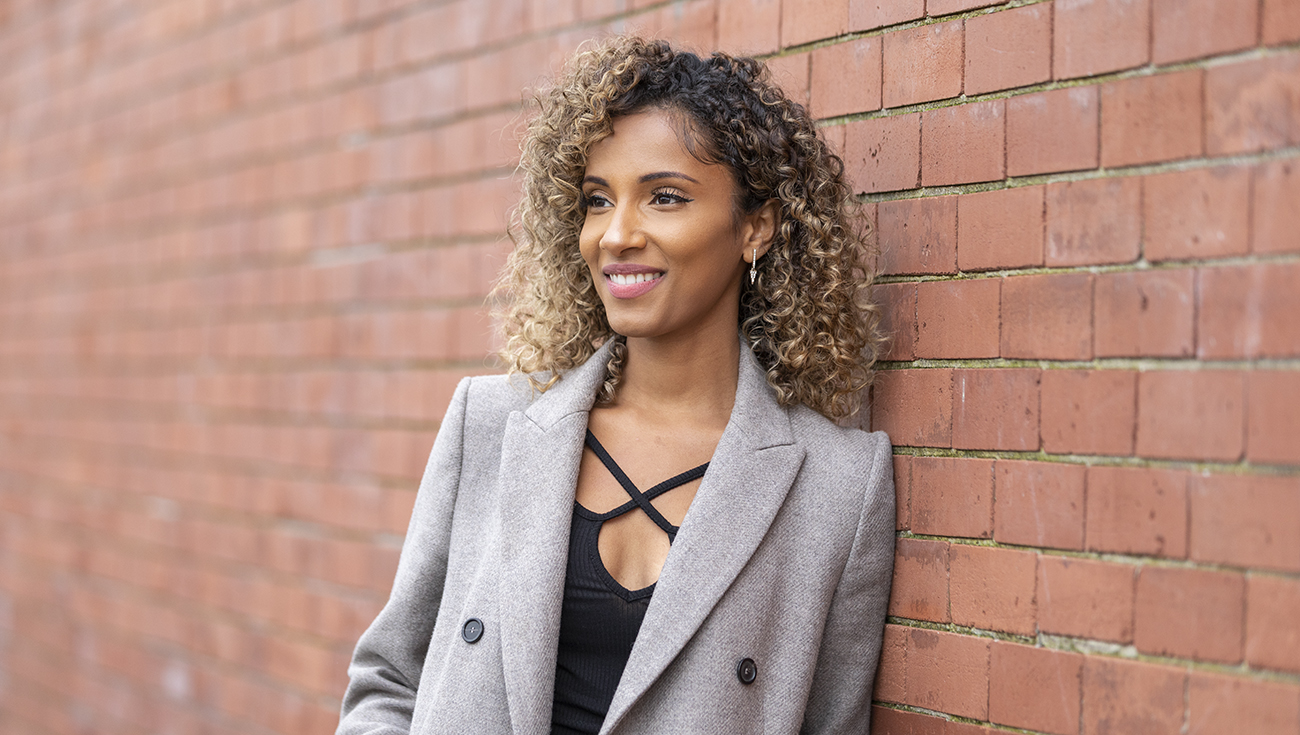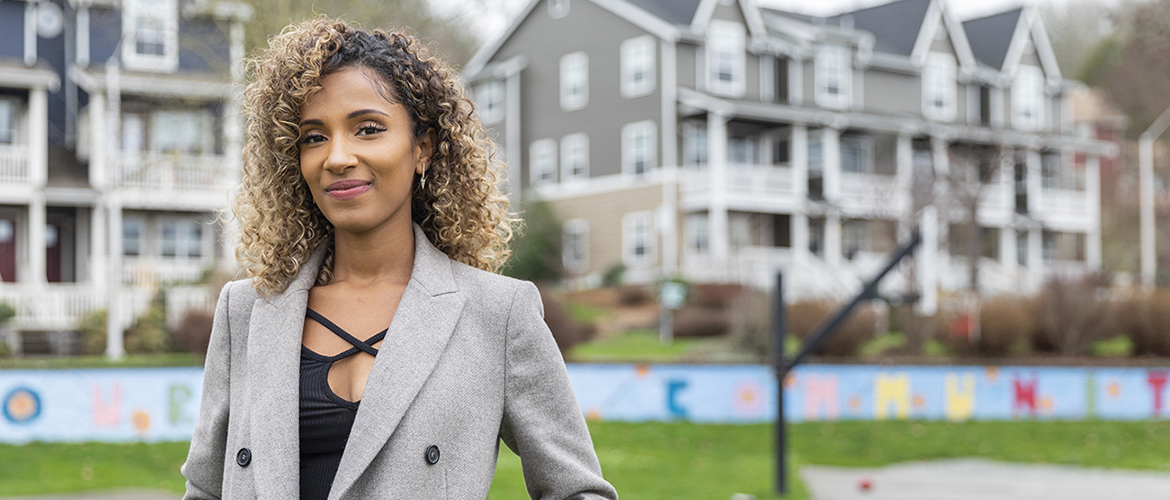
Yasmin Habib has been on many journeys. From Somalia to Kenya as a small child. From a Kenyan refugee camp to the US at age five. From city to city as her family sought opportunities in America. But Habib’s most challenging journey has been veering from the path expected of her — a career in medicine — to a path that felt right to her.
Today Habib (BA, Anthropology, 2014) is founder and director of World Mind Creation Academy (WMCA), a nonprofit for refugee, immigrant, and other traditionally marginalized youth in South Seattle. She created the nonprofit in 2014, and received a major grant from King County’s Best Starts for Kids initiative three years later to expand the program. But those successes belie the challenges Habib encountered along the way.
There’s this huge emphasis on getting your work done. But what about connection? What about emotion?
When Habib arrived at the UW as a freshman, she had an impeccable academic record. She had been valedictorian of her high school in Kent, Washington, and long planned to become a physician. But her pre-med courses didn’t excite her, and a medical-dental summer program after her sophomore year confirmed that she did not want to be a doctor. That realization led to a very dark period in her life.
“My family sacrificed a lot,” Habib says. “The best thing to an immigrant mom and dad is for their child to be a doctor because everybody needs doctors. That’s such an important part of the survival mentality that our families have. For a long time I convinced myself that’s what I wanted to do, and it was such a hard thing to admit I didn’t want that. My entire identity had been based on that.”

Habib fell into a deep depression. She took time off from school and moved back home. Telling her parents she did not want to be a doctor “was one of the hardest things I’ve had to do,” she recalls, “but I was already at the lowest I could be, and the only thing that became important was being happy again, feeling normal. The depression forced me to speak my truth.”
Habib remembered liking an anthropology course she had taken at the University, so when she returned to campus she decided to take more, including an anthropology service learning course that involved tutoring Somali children at a local nonprofit. “That was a huge turning point,” Habib says. Being around Somali youth felt familiar, as did the children’s focus on academic success. Habib saw herself in those students and understood the intense pressure they felt to succeed.
“There’s this huge emphasis on getting your work done,” she says. “But what about connection? What about emotion? I learned the hard way that you have to make time for that, or your body will force you to make time for it. I wanted to prevent the same thing from happening to these kids.”
That thought stayed with Habib after she graduated from the UW. She read books about youth development and volunteered with nonprofits to better understand existing programs for children. None of those programs provided the services she wanted to offer, so after a year of planning and envisioning — including many conversations with mentor Bettina Shell-Duncan, UW professor of anthropology — Habib launched World Mind Creation Academy.

WMCA is an afterschool program in South Seattle’s Rainier Vista neighborhood. In six-week sessions, children ages 6 to 14 play games, participate in other team-building activities, and take on community projects. “I felt children needed to feel a sense of belonging, to celebrate their cultural heritage, and to discover that they can thrive and make a difference in their own communities,” says Habib.
Adult mentors are an important part in this endeavor. Habib believes children benefit from mentors who look like them, speak their languages, and can relate to their experiences. WMCA mentors help with projects but encourage the children to take the lead — an experience Habib wished she’d had as a child. “I didn't feel fully heard when I was eight,” she says. “That happens so much with kids, and it’s so unfair to them. At WMCA, kids get to own the program. That can be very challenging for the adults, who want things to be perfect. But our idea of perfect and the kids’ idea of perfect is not that same, and we have to accept that.”
For the first few years, Habib ran WMCA on a shoestring budget, securing short-term projects on a contract basis. Then she heard about King County’s Best Starts for Kids initiative. “It felt like the perfect grant at the right time,” she recalls. “It just fit with everything we were trying to do.”
Evidently so. Best Starts for Kids awarded WMCA $500,000 in 2017. With the additional funding, Habib has expanded WMCA’s curriculum while maintaining the focus on children’s emotional well-being. In 2020, she plans to introduce mindfulness training. “I’m really interested in going a lot further and refining the mental and emotional aspects of the work that we do,” she says.
Habib admits that receiving the grant was both exhilarating and scary — much like the decision to follow her passion rather acquiescing to societal expectations. Her journey has been difficult, but she wouldn’t change a thing.
“I feel like it’s all working out the way it’s supposed to,” Habib says. “When I was depressed and anxious, I felt like it was the worst possible thing that could happen to me. But now I realize it was a really important time in my life. It was my awakening to who I really am.”
More Stories

Finding Love at the UW
They met and fell in love as UW students. Here, 10 alumni couples share how they met, their favorite spots on campus, and what the UW still means to them.

AI in the Classroom? For Faculty, It's Complicated
Three College of Arts & Sciences professors discuss the impact of AI on their teaching and on student learning. The consensus? It’s complicated.

A Love of Classics and Ballroom
Michael Seguin studied Classics at the UW and now owns Baltimore's Mobtown Ballroom. The two interests, he says, are more connected than they might seem.